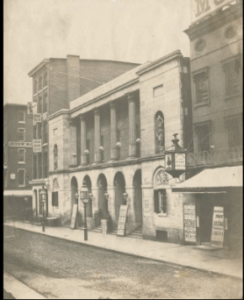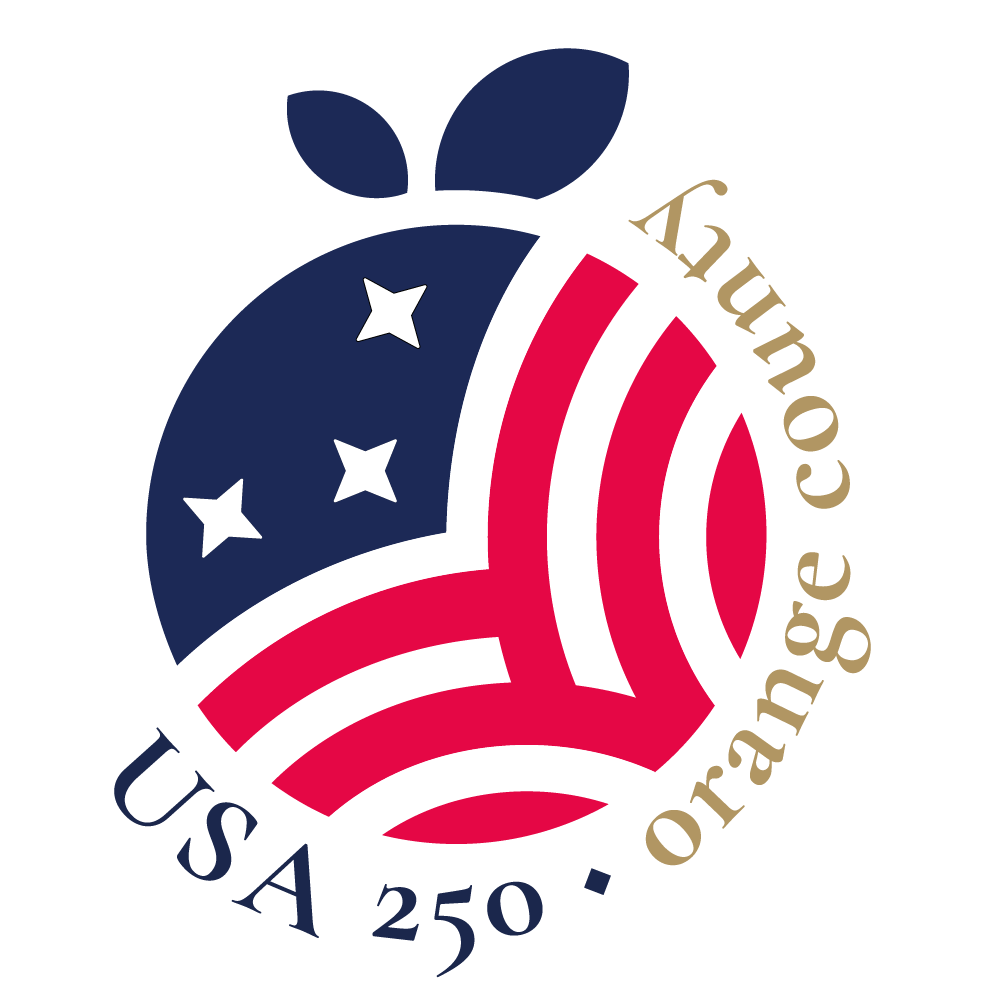
On July 4, 1827, a new two-act national drama premiered at the Chestnut Street Theater in Philadelphia, Pennsylvania. Written by George Washington Parke Custis, it was based on the story of his grandfather’s (through marriage) encounter with indigenous tribal warriors at the beginning of the French and Indian War.
George Washington was a young, twenty-one-year old surveyor and farmer in the autumn of 1753 when commissioned as a major in the Virginia militia and ordered to warn the French to abandon their forts and intrusions into the Ohio Country. Accompanied by Christopher Gist, his perilous return journey to Williamsburg, on foot, through freezing December snows and treacherous terrain, was reported to Virginia’s lieutenant governor and publicized as far as Massachusetts and London, bringing him immense acclaim.
Months later, his reputation suffered after leading a surprise attack against a small French military force, resulting in the death of its commander. Sending shock waves through France and England, the incident was considered the first shot of a world war known as the French and Indian War in the North American colonies and the Seven Years War in Europe. Washington was further humiliated weeks later when he and his men surrendered to superior French forces at Fort Necessity. Nevertheless, his courage, perseverance and tenacity were widely acknowledged.
Washington’s opportunity to prove himself resurfaced when British Major General Edward Braddock arrived in Virginia in the spring of 1755 with orders to eject the French from the Ohio Valley. Aware of Washington’s familiarity with the frontier territory, Braddock invited him to become his aide-de-camp. Although Washington continually warned Braddock that the Indian and French way of fighting in the wilderness was unlike anything that Braddock or his troops had faced, Braddock ignored his advice, favoring traditional British method of disciplined, linear-style warfare.
On July 9, three groups of British soldiers crossed the Monongahela River. The first two groups were led by Lt. Col. Thomas Gage and Captain Horatio Gates. Many years later, both would play important roles in the War for Independence. Braddock let the third group, composed of about five hundred men, including Washington. A large combined force of French and Indians were lying in wait behind trees, shrubs and rocks, shooting from the ground and disappearing into the forest. They began scalping and pillaging the fallen. Braddock’s troops became confused and disoriented, fleeing in all directions. Braddock himself was shot twice and died several days later.
French casualties were minimal, but nearly two-thirds of Braddock’s troops were killed or wounded, many hit by friendly fire in the battlefield confusion. The French and their Indian allies had specifically targeted British officers. At more than six feet in height, Washington was a prime target and showed indomitable courage in the thick of the battle. Even though two horses were shot out from under him and four bullet holes went through his uniform and hat, he was completely unscathed.
James Craik, a young doctor who would become Washington’s friend, witnessed the battle, recalling, “I expected every moment to see him fall. His duty and station exposed him to every danger. Nothing but the superintending care of Providence could have saved him from the fate of all around him.”
Fifteen years later, as Craik and Washington were traveling through those same woods near the Ohio River, an old Indian chief approached them, speaking through an interpreter. “I am a chief and ruler over my tribes,” he began. “I have traveled a long and weary path that I might see the young warrior of the great battle. It was on the day when the white man’s blood mixed with the streams of our forest that I first beheld this chief.” Noting that Washington had fought differently than the “red-coat tribe,” he ordered his men to “let their aim be certain, and he dies. Our rifles were leveled…’twas all in vain, a power mightier far than we, shielded you. One warrior declared, ‘I had seventeen fair fires at him with my rifle and after all could not bring to the ground.’ Seeing you were under the special guardianship of the Great Spirit, we immediately ceased to fire at you.”
Then the old warrior chief prophesied: “Listen! The Great Spirit protects that man and guides his destinies – he will become the chief of nations and a people yet unborn will hail him as the founder of a mighty empire. I am come to pay homage to the man who is the particular favorite of heaven, and who can never die in battle.”
The title of Custis’ play? The Indian Prophecy: A National Drama in Two Acts. For those who are interested, it is available on Amazon–click on the link below.
